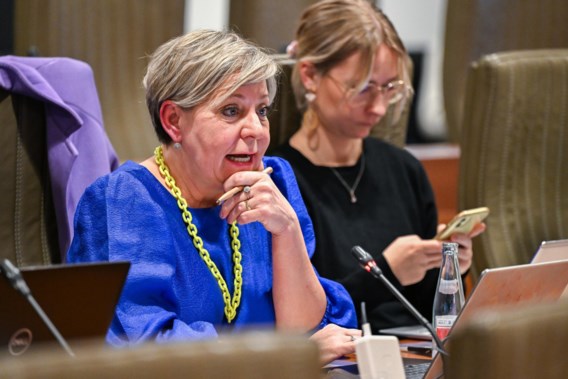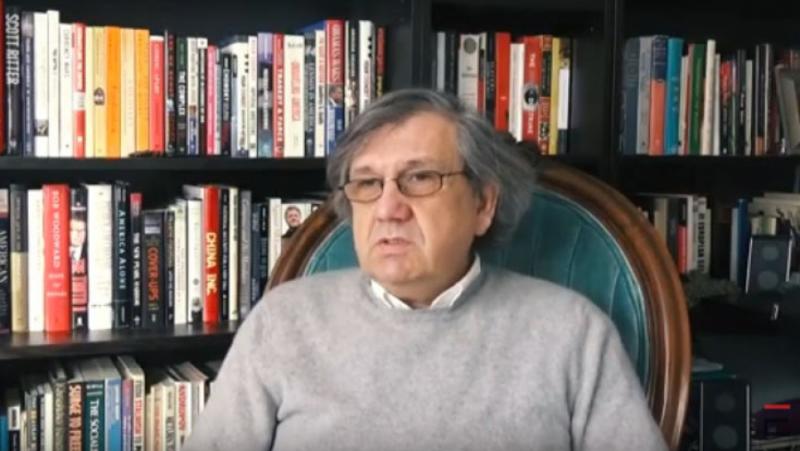The news from De Standaard that the VRT leadership has tried to stop programs or have (parts of) programs canceled in the past has provoked political outrage. For the Flemish opposition parties Vooruit and Groen, the end is gradually being reached, after the fuss of the past week regarding the first “postponed” and subsequently broadcast documentary about the victims of TV maker Bart De Pauw, The Trial That Nobody Wanted. The postponement was an initiative of numbers 1 and 2 of the VRT, CEO Frederik Delaplace and content director Ricus Jansegers. Afterwards they admitted that they had made an “error in judgment”.
The same duo would also have wanted to postpone the award-winning series about abuse in the church, Godforgotten, but that plan ultimately fell through. Afterwards, Delaplace stated that he was “very proud” of the program. A number of fragments from the Mia’s award show and an item from the consumer program Factcheckers were indeed withheld before broadcast.
He listens externally
“The VRT is in its worst crisis ever,” says Flemish MP Katia Segers (Vooruit). “This is truly du jamais vu, and absolutely unacceptable. The VRT undermines its own raison d’être with these types of practices. A strong public broadcaster is necessary for a strong democracy, the VRT must make a difference with programs that matter, with independent investigative journalism in areas where there is social urgency. A public broadcaster that starts to self-censor out of fear threatens democracy.”
This contains inserted content from a social media network that wants to write or read cookies. You have not given permission for this.
Click here to adjust your preferences
Segers sharpens her request for an external audit: the recent developments in the file make the request a requirement, she says. “Bodies keep falling out of the closet, an external audit is urgently needed.” Moreover, the Vooruit MP wants to summon the VRT top in person to the committee to hear them themselves. Together with Groen, Vooruit requests an additional session of the media committee to place the decision makers on the root star.
Additional convocation
Green MP Meyrem Almaci, chairman of the media committee in the Flemish parliament, also calls the new revelations particularly serious. “If the information about the programming is correct, it is extremely disturbing and again a major fact,” said Almaci. “It underlines our previous questions about the extent to which the top can be influenced, the procedures and the leadership style.”
In addition to an extra meeting of the media committee, Almaci also wants to convene the VRT board of directors. After all, these are turbulent times. Apart from the Bart De Pauw case, an anonymous email surfaced during the media committee on Thursday about “transgressive behavior” and “toxic leadership” within the VRT Jong editorial staff. According to the VRT top, neither allegation exists, but there are “work points” at the relevant editorial office. It is about feedback culture and disconnection, among other things.
The public broadcaster announced this week that an “external bridge builder” will be appointed to restore trust within the organization.
“Need for transparency”
Stephanie D”Hose (Open VLD), member of the majority in the Flemish Parliament, is also critical. “It is up to the CEO to take final responsibility for the programming of the VRT, and there is something to be said for that. He is best assisted by the expertise of his team. However, this case makes it clear that this process needs to be made more transparent. A flow chart of how such a decision is made, without further intervention. Editorial autonomy remains the highest asset.”
Specifically about the De Pauw case, D”Hose also questions the timeline. “The answers from Flemish Media Minister Benjamin Dalle (CD&V) show that De Pauw himself had contacted the VRT at the end of December, but according to recent information it appears that it was the CEO who contacted De Pauw on December 12. So that’s not right.”
Dalle said earlier this week that he maintains confidence in CEO Frederik Delaplace, he is supported by the Flemish majority.


